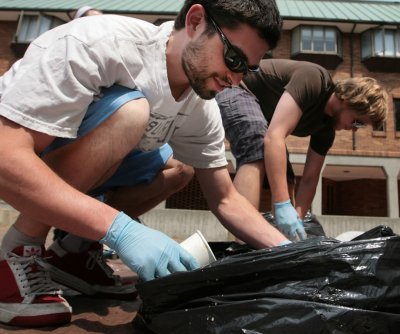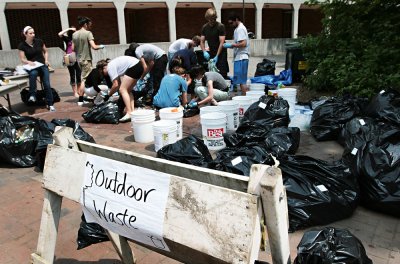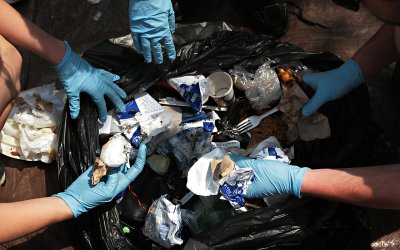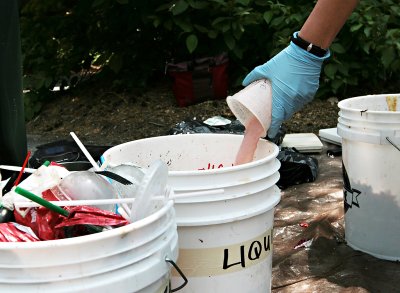Western completes Climate Action Plan, continuing WWU leadership in sustainability
Western Washington University, which has a long tradition of national leadership in sustainability and environmental education, has now completed a Climate Action Plan, which outlines a number of university goals to address climate change.
The WWU plan is part of the American College and University Presidents Climate Commitment, which is an effort undertaken by a network of universities and colleges that have made institutional commitments to eliminate net greenhouse gas emissions from specified campus operations and to promote research and educational efforts on climate change.
“Western has long been recognized as a national leader in the field, whether by innovative environmental research and education or through the visionary efforts of our students with renewable energy. This Climate Action Plan is tangible evidence of that continuing leadership commitment,” said Western President Bruce Shepard.
Western’s Climate Action Plan (CAP) commits Western to a number of goals, including: reduce net greenhouse gas emissions to 36 percent below 2005 levels by 2020; reach zero net greenhouse gas emissions (or “climate neutrality”) by 2050; incorporate greenhouse gas reductions into the institutional decision-making process; and create a standing plan implementation team.
Specific ways to reach those targets include: the university’s 10 X 12 Initiative, which seeks a 10-percent reduction in university utility use by the end of 2012; real-time reporting on energy use in campus buildings; electrification of campus vehicles; and research into biomass power generation.
In 2007, former Western President Karen W. Morse signed the Presidents Climate Commitment on behalf of the university. In late 2008, Western’s Office of Sustainability, with support from WWU Facilities Management, began development of the CAP, which was completed through a collaborative effort involving WWU students, faculty and staff. The final CAP was recently accepted by Western’s Board of Trustees.
Western’s CAP specifically states that financial investments in energy conservation and efficiency, on-campus carbon-neutral energy production and university-sponsored carbon reduction projects are contingent on current funding opportunities and will follow standard university budgeting procedures. With many of the plan components – such as campus energy conservation and efficiencies – there already are and will continue to be cost savings to the university. Western’s adoption of the plan also places the university well ahead of state requirements on reductions of greenhouse gas emissions.
For decades, many professors and students at Western have been examining the long-term human impact on the environment.
Western’s Huxley College of the Environment, one of the first environmental colleges in the nation, is internationally recognized for the caliber of its faculty, programs and research. Students in programs such as the Vehicle Research Institute and Industrial Design are working to develop fuel efficient hybrid cars and useful products from recycled materials. Western is now the only U.S. university – through its award-winning Vehicle Research Institute – competing in the finals of the Progressive Automotive X Prize competition in Detroit, an international competition aimed at producing a 100 mpg car.
A student-led effort several years ago resulted in Western obtaining 100 percent of its electricity from renewable resources. Western has a 35-year-old recycling program staffed by students. The Sustainability Institute Initiative was created in 2009 to assist members of the Faculty Sustainability Academy and other university units pursuing sustainability, including development of a new and very popular sustainability literacy course.
More than 600 colleges and universities nationally have signed onto the Presidents Climate Commitment, which provides a framework and support for America’s colleges and universities to become climate neutral. The Commitment recognizes the unique responsibility that institutions of higher education have as role models for their communities and in training the people who will develop the social, economic and technological solutions to address climate change. Western’s Climate Action Plan is available at the university’s Office of Sustainability website at https://sustain.wwu.edu/. For more information about the American College and Presidents Climate Commitment, see http://secondnature.org/.



